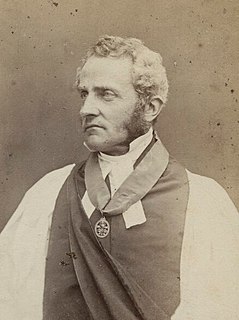A Quote by Edmund Burke
He only deserves to be remembered by posterity who treasures up and preserves the history of his ancestors.
Related Quotes
He who lays up treasures on earth spends his life backing away from his treasures. To him, death is loss. He who lays up treasures in heaven looks forward to eternity; he's moving daily toward his treasures. To him, death is gain. He who spends his life moving toward his treasures has reason to rejoice. Are you despairing or rejoicing?
With respect to the authority of great names, it should be remembered that he alone deserves to have any weight and influence with posterity, who has shown himself superior to the particular and predominant error of his own times; who, like the peak of Teneriffe, has hailed the intellectual sun before its beams have reached the horizon of common minds.
To the feudal aristocracy and the aristocracy of the spirit, nobility derives from diametrically opposite sources. The glory of the feudal aristocrat is in being a link in the longest possible chain of ancestors. The glory of the aristocrat of the spirit is in having no ancestors - or having as few as possible. If an artist is his own ancestor, if he has only descendents, he enters history as a genius; if he has few ancestors, or is related to them distantly, he enters history as a talent.
Herodotus is not more indisputably the father of history than is Sir Boyle Roche the father of Bulls. No doubt there were makers of bulls before his day, even as brave men lived before Agamemnon; but they are not remembered, and if their bulls have survived them they are credited to Sir Boyle by a posterity generously forgiving and forgetful of his famous indictment.
X is not my real name. But if you study history, you'll find why no Black man in the Western Hemisphere knows his real name. Some of his ancestors kidnapped our ancestors from Africa and took us into the Western Hemisphere and sold us there, and our names were stripped from us and so today we don't know who we really are. I am one of those who admit it, and so I just put X up there to keep from wearing his name.
Selfishness is when we pursue gain at the expense of others. But God doesn’t have a limited number of treasures to distribute. When you store up treasures for yourself in heaven, it doesn’t reduce the treasures available to others. In fact, it is by serving God and others that we store up heavenly treasures. Everyone gains; no one loses.
Treasures in heaven are more permanent. They are more satisfying. There are only two reasons why we are not as successful as we would like to be in laying up earthly treasures. One is that we sometimes get into the wrong business; and the second reason is that even though we may be in the right business, we do not always work at it effectively. Interestingly enough, these are the same reasons why we fail in laying up treasures in heaven.
What a singular destiny has been that of this remarkable man!-To be regarded in his own age as a classic, and in ours as a companion! To receive from his contemporaries that full homage which men of genius have in general received only from posterity; to be more intimately known to posterity than other men are known to their contemporaries!










































